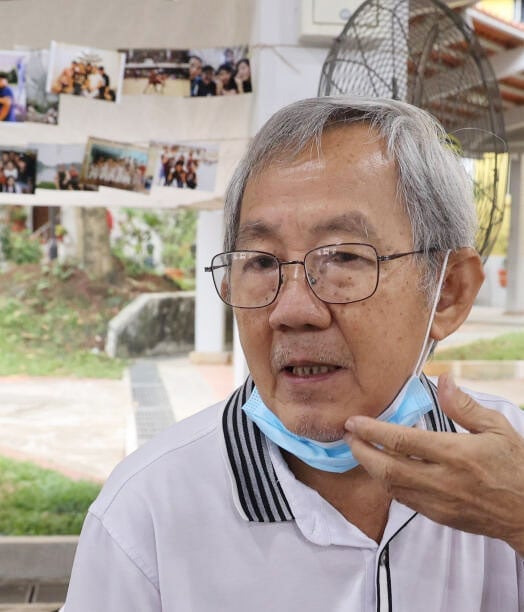A dentist won’t just check the condition of your teeth; if they found something abnormal, like a suspicious lesion, they’d flag it to the patient, and advise the patient for a more thorough checkup.
In fact, according to a study, regular dental visits are apparently associated with “earlier stage at diagnosis for oral and pharyngeal cancer.”
While Nanyang Technological University (NTU) graduate Justin Leng Zhan Chun was able to spot his cancer after a dental visit, it unfortunately did not manage to extend his lifespan.
NTU Graduate, Who Died at 28 From Cancer, Planned His Own Funeral
According to Lianhe Zaobao, Justin’s father said that Justin had gone to a dentist due to a toothache back in 2018.

After an x-ray (for the uninitiated, it’s common to take an x-ray during a dental visit), they found a tumour below Justin’s left jawbone.
It turned out to be a rare form of bone cancer, mandibular osteosarcoma.
During that time, he was in his second year in NTU business school, and had plans to head to Canada for a university exchange programme.
With the diagnosis, he shelved the plans and immediately went for treatment, which comprised chemotherapy and a surgery to remove his left lower jaw.
After his treatment, he entered remission a year later, in June 2019. Remission is a stage whereby the signs and symptoms of the cancer are gone or almost completely gone; sometimes, one can say that they’re “cured” if they stay in remission for over five years.
Once he was in remission, he went for this exchange program.
Unfortunately, a year later, in June 2020, an abnormality in his ear was found during a follow-up consultation; it was later revealed that the cancer has spread.
This time, Justin has to undergo two surgeries to remove the cancer.
He then graduated with honours from NTU, and worked as a consultant.
However, in November last year, four months after he started work, it was found that the cancer cells have spread to his skull.
That was when the doctor gave a prognosis, saying that he has only three to six months to live.
Justin then did the unthinkable: he decided that he would plan his own funeral.

His father said that Justin had already prepared for the worst since he was first diagnosed back in 2018, as the doctor had ready told him that people with cancer similar to his do not live beyond five years upon diagnosis.
Planning his Own Funeral
According to his father, who spoke to China Press, Justin was meticulous in his plan for his own funeral; he had initially wanted it to be located in a funeral parlour, but then changed it to the Hougang block they live in so as to accommodate his relatives with young children.
During this period, he continued to stay positive, trying out new drugs to treat his condition.
Even when his own mobility is limited, he continued to care for his parents, and even took his mother out for her medical appointments.
His sister said that he had hoped to live for one or two more years so that he could take care of his parents properly.
His Passing
Justin fell and was sent to the hospital on 8 March 2023.
His fell was due to bleeding in the brain as the cancer cells in his brain had spread further in.

He passed away on 14 March 2023.
He is survived by his parents, a brother and a sister.
As for his final wish?
He had wanted to share his cancer journey with more people so that other cancer patients would keep on fighting—much like how he did so with such tenacity and positivity.
Mandibular osteosarcoma, an osteosarcoma of the jaws, is a rare form of cancer.
Osteosarcoma refers to cancer that starts from the bone, and the mandible is the bone that holds our teeth (the jaw).
Mandibular osteosarcoma is rare, with it representing 6% to 7% of all osteosarcomas. A study shows that the 5-year survival rate is 53%, and the 10-year survival rate is 35%, with the median survival rate at eight years upon diagnosis. This is based on data of 541 patients between 1973 to 2011.



